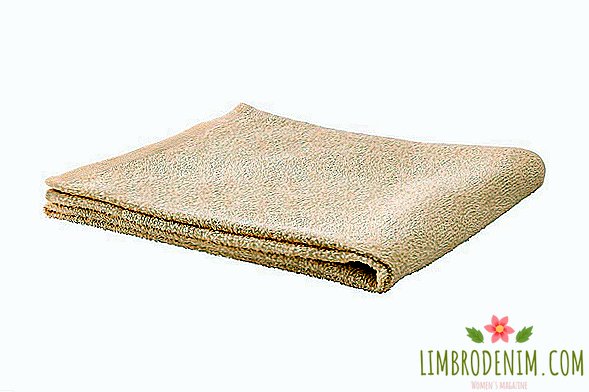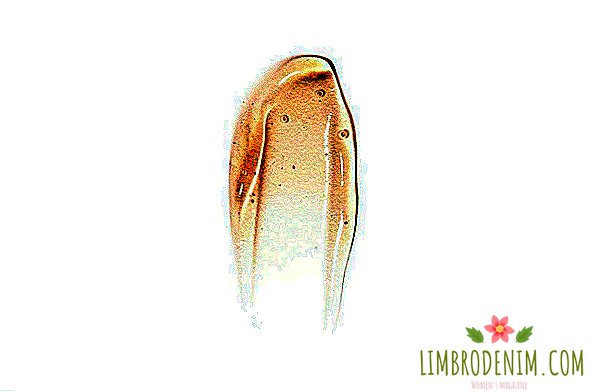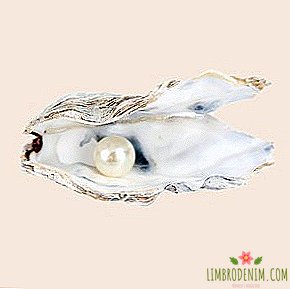Without fanaticism: 8 rules of intimate hygiene
HYGIENIC HABITS ARE DEVELOPED IN CHILDING.True, as a recent study has shown, Russian parents talk with children about hygiene is not enough; and if the rule of "washing hands after the street" sounds in most families, then they are too shy to talk about more intimate things. Both lack and hygiene can lead to problems that have to go to the doctor - and, for example, gynecologists have to re-teach their patients basic self-care. We spoke with Candidate of Medical Sciences, obstetrician-gynecologist Tatiana Rumyantseva and head of the gynecological department of ATE clinic Oksana Bogdashevskaya and made a list of important hygiene rules that should be followed.


Regularity
Of course, ancient people rarely bathed and survived, and the vagina is a self-cleaning system that does not require excessive hygienic efforts, but it is necessary to eliminate surface contaminants and products of the glands from external genitals regularly. It is recommended to wash off at least once a day, and better after each use of the toilet or (during menstruation) with each change of tampon or pad. Do not forget that for intimate hygiene you need to allocate yourself a separate towel and change it more often.

Simple water is enough
Water perfectly washes away liquid secretions, particles of mucus and dust, so in most cases you can do without soap or gel to cleanse the external genitalia. The surfactants in their composition are intended primarily for the splitting of fat molecules - and, if used excessively, destroy the protective lipid film of the skin. Soap is recommended to clean the perianal area, especially immediately after visiting the toilet, but the genitals can be rinsed with plain water.

Front to back
This rule, probably, will seem obvious to many, but nevertheless let's speak it: the movement of the hand when washing away should always be directed from front to back. The vaginal flora is safe for the intestines, but the intestinal for the vagina is not, so you should try not to "bring" bacteria from the anus to the genitals. This applies to the use of toilet paper, and to hygiene in relation to sex toys: nothing should fall into the area of the vulva or vagina after anal contact.

Without fanaticism
No need to use antiseptics or antibacterial soap in regular mode. An alcohol-free antiseptic can treat the skin after epilation or other injuries, but this is the case when there are indications for its use. In a normal, everyday routine, intimate hygiene should not be excessive; The human body produces many secrets, including with a certain smell, and this does not mean that it is not clean enough.
Forget about such a procedure as syringing: it does not bring any benefit, but it can easily destroy a finely balanced vaginal microenvironment; in the presence of infection, it is also a sure way to “drive” it into the organs located above. There is evidence of the relationship of douching (it is also called "dushing") with complications of pregnancy and even the risk of cervical cancer, not to mention infections and inflammatory processes. The mucous membranes inside the body do not need to be cleaned at all, so we repeat once again: you only need to wash what is outside, and then without a washcloth.


If soap, then neutral
Intimate hygiene - just the case when it is better to use baby soap or gel, if you think that simple water is not enough. The more aggressive the soap, the higher the risk of drying out the skin and mucous membrane and disrupting microbial equilibrium - all these factors can lead, for example, to activation and excessive proliferation of bacteria, which we normally have few. As a result, the discharge may become larger or an unpleasant odor will appear - and in trying to “better” clean everything up, you can further aggravate the situation.
We have already said that the microflora may change, for example, when changing the brand of condoms or excessive sweating in the heat. If you have been diagnosed with thrush or gardnerella, do not panic and think that you have become infected - these are opportunistic infections, that is, their pathogens are always present in the body. It is worth thinking about what factors could trigger such a failure; one of the possible - too aggressive hygiene.

Pharmaceuticals - not a marketing ploy
There are also special tools for intimate hygiene. First, they are mild, often with moisturizing ingredients and without excessive flavoring, which can cause irritation or an allergic reaction from the delicate mucosa. Secondly, the acidity (pH value) of such products is at the level that is best suited to the intimate area.
True, it is worth talking about the choice of such a tool with a gynecologist. Most often found acidic (with low pH) or neutral. Neutrals are designed to simply replace the soap, that is, to serve as a hygiene supplementing water. Gels with higher acidity help in the treatment and prevention of certain types of vaginosis or vaginitis; Tatyana Rumyantseva notes that they can cause unpleasant sensations in some women, therefore they should be used on the recommendation of a doctor.
This variety does not end there: sometimes alkaline (with high pH) intimate soap. According to Oksana Bogdashevskaya, it is prescribed, for example, in recurrent vaginal candidiasis (thrush) or other conditions characterized by a sharp increase in the population of lactobacilli, that is, normal vaginal microbes. At the same time, the medium becomes too acidic, and the alkaline soap helps to correct it.

Gaskets for every day - not a means of hygiene
Gaskets protect lingerie from secretions, but does not improve the level of hygiene of the genitals - but they can also do harm. Bogdashevskaya says that the pads are too intensively absorbing the secret of small glands, located on the eve of the vagina. The glands begin to work with all their might, but the vulva may still remain without the protective layer it needs - and this again leads to an aggravation of bacterial and fungal infections. In addition, gaskets, especially flavored ones, can themselves cause irritation and itching.

Attention to underwear
The recommendation to choose cotton underwear instead of synthetic may seem boring, but tight polyester pants can actually be harmful: the heat beneath them is not removed properly, the skin sweats, bacteria and fungi multiply rapidly. If you also live in a hot climate, you often risk treating exacerbations of thrush - although for prevention it may be enough to reconsider your choice of underwear and pay extra attention to hygiene.
All this does not mean that synthetic underwear does not fit anyone at all. Our body is able to compensate for a long time the changes that we push it; if you wear polyester all your life without any discomfort, you are lucky. But if from time to time there is irritation, itching, candidiasis worsens, it makes sense to try changing panties to cotton or silk.
Photo: IKEA, Africa Studio - stock.adobe.com, Irina - stock.adobe.com





